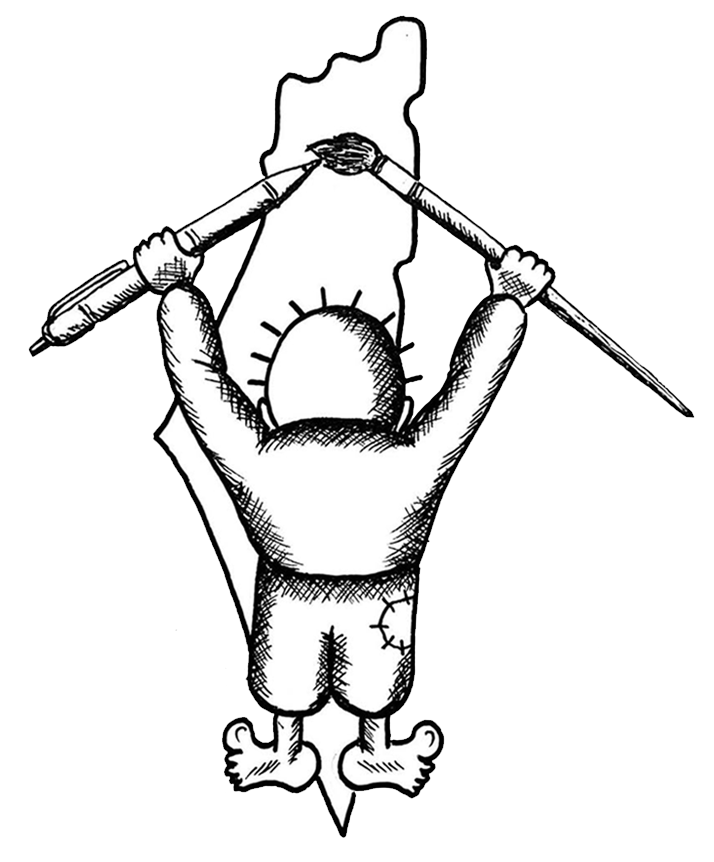Donya Ahmad Abu Sitta
Donya Ahmad Abu Sitta is a 23-year-old writer, poet, translator, teacher, photographer, and medical student. Her work has been published in Al Jazeera, The Electronic Intifada, Palestine Chronicle, and We Are Not Numbers. Throughout the genocide, Donya has also often appeared on EI’s livestream to talk about the current situation on the ground.
However, since childhood she’s dreamed of becoming a neurosurgeon.
“This dream was born from pain. I lost my grandmother four years ago to Alzheimer’s and neurological complications. Today, my other grandmother is beginning to show similar symptoms. In Gaza, neurological illnesses are increasing—likely due to frequent wars and exposure to heavy bombardment. I want to help. I want to be part of the solution.
After high school, I couldn’t afford medical school. I tried engineering but felt no passion. I then pursued English literature so I could work and support myself. I became a journalist, reporting from the ground during the war, writing for international outlets, and raising awareness about the realities of life in Gaza.
But the dream of medicine never faded. I’ve now been accepted into medical school. Sadly, the war forced my family to use all the savings I had prepared.”
Recently, Donya started a Substack and self-published her book Pieces – consisting of 22 poems and messages – with both English and Spanish translations. She also began teaching Arabic language lessons.
“For me, writing is freedom, and my dreams are limitless. I believe in the power of words. I create my chances to pass my ideas to the world by writing and photography.”
Watch (below) one of Donya’s recent appearances on The Electronic Intifada’s livestream, where she is a frequent guest to speak about her experiences.
Read a poem from Donya
What Extreme Force Looks Like
Every day in Gaza the boundaries between reality and imagination blur, and every moment is a test of endurance. In moments like these I ask myself if I will die, or is there a level of torment I must endure before death.
The previous night, 11 June, we had not yet received any evacuation notice. But the bombings were so close that we heard and felt the explosions from the fifth floor of our apartment in Khan Younis. In the middle of the night, I awoke to three very powerful explosions and I prayed, “Ya Allah, I hope this night ends quickly.”
I had an ear infection, and I could feel the air fill my ears and the pressure build with every explosion. Imagine a giant hammer striking your eardrum, followed by a painful ringing, an incessant buzz that you can feel in your chest and bones.
Our building shook from the force, our furniture dancing across the floor and the windows trembling. With every explosion I could feel the ground move beneath my feet, all the way up on the fifth floor.
In the morning, we could see the aftermath of the explosions. The black-gray smoke from the airstrikes suffocating the horizon; the white smoke from the tank shells snaking horizontally through the buildings. Then, that phone recording instructing us to evacuate.
It felt like the entire city was dying.
We tried to get a car out of Khan Younis on June 12, right after we received the evacuation call, but there were no cars available. I watched from above as those living in the camp below packed up their tents, mattresses and other belongings.
The next day, June 13, my family and I joined the crowds on Nasser Street to wait for a car. My mother, three sisters and my younger brother waited nearly an hour in the sun for a car because by that time everyone in the area was evacuating.
In my bag I had packed my Palestinian flag and my kuffiyeh. I reminded myself that I am not a displaced person – I am a human being in need of a space to exist and to pursue my goals.
In the car, nobody spoke. We were too tired for that.
I miss Khan Younis. I feel a kinship with the city and its people. Its eastern areas are agricultural, and its western areas are densely populated, with houses tightly packed together. The southern areas are quieter, with houses surrounded by green spaces.
I have to say that I am anxious about what will come next. We are trying to find a place to stay that will give us more privacy. My emotions are never settled.
I see the trees, but I can't get close.
I see the sky, but I can't fly.
I see the sea, but I can't touch it.
I am Gaza
Brother, behind a different border, where are
you?
This land was once full of life.
I know you are far away.
I know you move with difficulty.
But we are trapped.
"Brother" means everyone in this world!
More of Donya’s writing can be found at the following sites where she publishes the most: We Are Not Numbers, The Electronic Intifada, and her own Substack.
Discover more Gaza writers & artists
Follow the links below to see a list of other creative individuals in the Strip to support and amplify.






